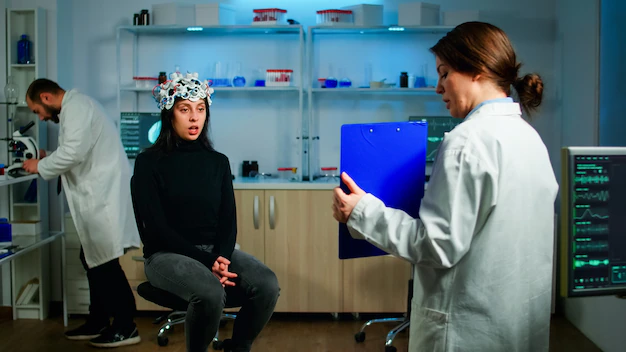Restoring Balance: Therapy Approaches for Anorexia Nervosa and Their Impact
Page Contents
Introduction
Anorexia nervosa is a serious and complex eating disorder characterized by restrictive eating habits, an intense fear of gaining weight, distorted body image, and often accompanied by excessive exercise. Therapy is a fundamental component in the treatment of anorexia nervosa, offering specialized interventions aimed at addressing underlying psychological factors, promoting healthier eating behaviors, and supporting individuals on their path to recovery.

Defining Therapy for Anorexia Nervosa
Therapy for anorexia nervosa is multifaceted, focusing on addressing the cognitive, emotional, and behavioral aspects of the disorder. The primary goals of therapy include restoring a healthy relationship with food, addressing distorted thoughts and beliefs, managing anxiety related to food and body image, and fostering overall well-being.
Sample Therapeutic Approaches for Anorexia Nervosa
- Cognitive Behavioral Therapy (CBT):
- CBT addresses distorted thoughts and beliefs about body image, weight, and food.
- It helps individuals challenge negative thinking patterns, identify triggers, and develop healthier coping strategies.
- Techniques involve monitoring food intake, challenging irrational beliefs, and gradually reintroducing foods in a structured manner.
- Family-Based Therapy (FBT):
- FBT involves the family in treatment, aiming to support the individual in restoring healthy eating habits and addressing family dynamics related to the disorder.
- It focuses on re-establishing regular eating patterns, meal support, and empowering parents to take an active role in meal planning and management.
- Dialectical Behavior Therapy (DBT):
- DBT emphasizes emotion regulation, distress tolerance, and mindfulness to address emotional dysregulation often present in individuals with anorexia nervosa.
- It helps individuals develop adaptive coping skills to manage intense emotions that may contribute to disordered eating behaviors.
- Interpersonal Psychotherapy (IPT):
- IPT focuses on addressing interpersonal difficulties and relationship issues that may contribute to the development or maintenance of anorexia nervosa.
- It aims to improve communication skills and resolve conflicts within relationships, which can impact the individual’s self-esteem and body image.
Benefits of Therapy for Anorexia Nervosa
- Supports individuals in challenging and changing distorted thoughts and beliefs related to food, weight, and body image.
- Provides coping skills to manage anxiety, stress, and emotional dysregulation associated with the disorder.
- Facilitates the development of healthier eating habits and a more positive relationship with food and one’s body.
- Addresses underlying psychological factors contributing to the disorder, fostering long-term recovery.
In Conclusion
Therapy for anorexia nervosa is a crucial aspect of comprehensive treatment, addressing the multifaceted nature of the disorder. Whether through CBT, FBT, DBT, IPT, or a combination of modalities, therapy aims to empower individuals to challenge and reframe distorted thoughts, develop healthier coping mechanisms, and rebuild a positive relationship with food and body image. With the support of specialized therapy, individuals can embark on a journey towards recovery, healing, and improved overall well-being in their battle against anorexia nervosa.







